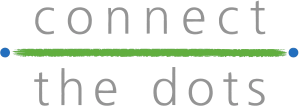By Amy L Shoemaker, President and Owner of Amy L Shoemaker Partnerships, LLC and CWCC Member
I have met some incredibly bright and talented leaders. When the topic of “delegation” comes up, they grimace and comment that they need to get better at that!
This is a 3 part blog on Delegation Tips for Success – What to Delegate, How to Effectively Delegate and Delegating the Task and the Authority.
How to Effectively Delegate
Once you have identified What you can Delegate, it’s time to plan Who and How will you delegate.
- Evaluate Delegation Needs – grab the list you created last week of assignments you are going to delegate and then walk through these questions.
- Prepare to delegate the assignment –
- What is the Task?
- What is the Responsibility level and intended results?
- What resources are available if the employee needs help?
- How does completing the assignment benefit the employee doing the work? Will the skills help advance their career or provide them with more opportunities to complete creative work?
- What follow up will you do?
- Select the right person
- Does the work belong to a particular position?
- Who has the interest or motivation to do the work?
- Who has the skills to do the work?
- Who could be challenged by doing the work?
- Who has time to do the work?
- Make the assignment – set a day and time to meet with your employee and give them the project and information you identified in step 2.
- Follow-up
- Periodically check your level of involvement – too much or not enough?
- Provide coaching and resources as needed
- Intervene when necessary to keep the project on track
- Share responsibility for success and “limited success” with the employee
- Evaluate the completed work and the process
- Review the work with the employee
- Give feedback and document their performance
- Obtain their feedback regarding your level of involvement – too much or not enough?
Please take a few minutes to decide when you are going to delegate the 3 projects or assignments you identified and identify what information and support you need to provide your employees so they can be successful.
If you are interested in learning more about what skills are needed to advance your career, take a look at the Corporate Executive Leadership Academy offered at the Colorado Women’s Chamber.
 About Amy L. Shoemaker, PHR, SHRM-CP, CMC, EMBA
About Amy L. Shoemaker, PHR, SHRM-CP, CMC, EMBA
Amy Shoemaker utilizes more than 25 years of business experience in human resources and training to provide strategic human resource consulting, executive coaching and leadership development, and merger and acquisition leadership integration. She uses her 18 years experience as a vice president and strategic HR leader in entrepreneurial mid-size, and Fortune 500 corporations to exceed her clients’ expectations. Amy develops future leaders by serving as adjunct faculty and content adviser for the Master’s in Strategic Human Resources program at The University of Denver. She is adjunct faculty for Colorado State University’s Veterinary Management Institute and Beverage Business Institute.
Education and Certifications
- Wichita State University, Executive Masters in Business Administration (EMBA)
- Stanford Graduate School of Business, Human Resources Executive Program
- Cornell University – Diversity Course Employer Adviser
- HR Certification Institute, Professional in Human Resources (PHR)
- Behavioral Coaching Institution, Certified Master Coach (CMC)
- CPI 260 Leadership Assessment, Certified Practitioner
- Emergenetics International, Certified Associate
- Thomas Killman Instrument – Conflict Resolution Style
Professional Associations and Civic Groups
- Colorado Women’s Chamber of Commerce, Facilitator/Founder Corporate Leadership Academy
- Mile High SHRM Chapter, Board of Directors- Professional Development Groups
- Northern Colorado Human Resource Association, Board of Directors, Conference Chair
- Rocky Mountain HR People & Strategy, member
Contact: amy@shoemakerpartnerships.com;
Office: 303-993-2364; Mobile: 316-305-7972
Website: ShoemakerPartnerships.com
LinkedIn: Amy L Shoemaker



